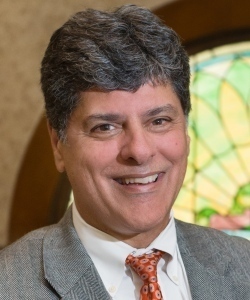Many nursing homes will draft a power of attorney for their residents. Doing so is often framed as saving money. However, if a power of attorney is done without an examination of the circumstances, it can cost many times more money than it saves.
A recent publication of the National Academy of Elder Law Attorneys (NAELA) reported on a Chicago nursing home that drafted a power of attorney (hereinafter “POA”) for an elderly resident. In the POA, the woman appointed her son as agent. When her children asked the nursing home about the POA, the home told them that their mother did not need an attorney to prepare the POA because once their mother enters the home, they will take care of everything. In other words, the nursing home was a “turn-key” operation.
Unfortunately, what the nursing home did not know was that the son who was named as agent under the POA had a severe drug addiction. He also lived in the home owned by his mother. That addiction led to the son using one million dollars of his mother’s money to support his drug habit. How did he get away with this betrayal? He logged into his mother’s various asset accounts to transfer money over to himself. Further, he intercepted all mail notifications and bank statements, so that no one – other than him – could see the activity taking place in the mother’s accounts.
At some point, the other children found out that the nursing home was not being paid for the mother’s care. Unfortunately, three years had gone by before this discovery. The nursing home threatened to evict the mother from their facility. She only had $30,000.00 remaining in liquid assets. As for the drug-addicted son, his lifestyle caught up with him. He was ultimately imprisoned on drug charges. Most of the money was gone.
Should nursing homes prepare POAs as a convenience to its residents? I submit that they should not. Nursing homes should no more provide legal services to the elderly than attorneys should provide long-term care for those same people. Why not? Nursing home staff are not educated, trained or experienced in adequately discerning the legal complexities of a POA and its potential misuse. In addition, nursing home staff are not likely to appreciate the importance of client confidentiality, building trust with a client, assessing their legal competency to execute a document such as a POA or protecting the client. Last, nursing home staff may not know all the relevant facts and circumstances about the proposed agent such as a son who has a significant drug problem.
Most people believe that POAs are simple documents and it could save attorneys’ fees to have nursing homes prepare a resident’s POA. The story I’ve told above illustrates how terrible the outcome could be when a nursing home engages in this kind of practice. The nursing home might have thought that they were doing something good for their resident but in the end, this was certainly not in this woman’s best interests. Ironically, the home didn’t get paid for the care that they gave to their own resident. Further still, they undoubtedly exposed themselves to a potential lawsuit, not to mention taking an enormous hit to their reputation.
Connecticut (like all other states) prohibits the unauthorized practice of law. Generally speaking, the unauthorized practice of law is defined as giving advice to another person concerning their legal rights and applying legal principles and judgment to the circumstances or objectives of that person. The practice of law includes drafting legal documents involving or affecting one’s legal rights.
If your elderly parent is in a nursing home and your family dynamics are not unlike what I’ve described here, be your parent’s advocate. Don’t accept the nursing home’s representation that it is a “turn-key” operation. A properly drafted power of attorney should be written by an experienced elder law attorney who practices in the area of elder law and estate planning. Whether it is the care of your parent or the protection of their legal rights, you must remain vigilant. Consult with an experienced estate planning attorney about doing what is in your elder’s best interests. At Cipparone & Zaccaro, we can help you and your parent in this type of situation.

